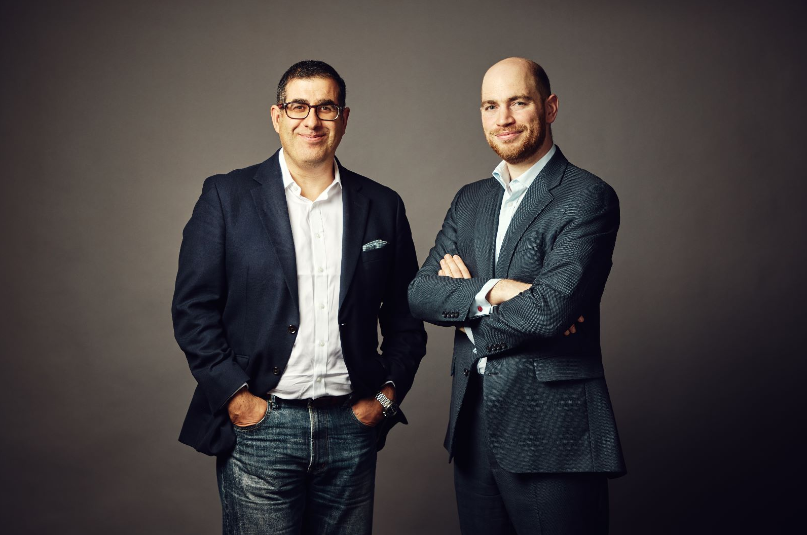Certainly, there is a realization of some policymakers that they know almost nothing about the commodity traders, their sector and when they try to obtain information, they can’t – said Javier Blas from Bloomberg, who co-authored with Jack Farchy a book World for Sale which is to be published in Polish this summer.
What is the origin of your book’s title?
We worked with Jake to summarize what commodity industry does and its attitude for business. We discussed it for long with him, colleagues, and friends. One of them said “you buy everything and sell everything. Everything is for sale”. Someone finally said: “world for sale”. It became the working title. Sometimes titles change in editorial process. We didn’t expect it to work. But it is a good description of commodity trading. Traders are willing to go anywhere, everything for them is for grab. Everyone in the industry says they are not breaking the law. You see that sometimes it happens. There is corruption, money laundering. The industry pays more attention today to role of law and morality but tt is still an industry going to the very last mile, they work on the knife edge in every deal.
What is the energy crunch impact on traders?
Energy crunch and Russian invasion in Ukraine provided a fantastic trading opportunity. Energy and resources were even more profitable. Big volatility created a lot of opportunities. If you look at profitability of Glencore, Vitol, Cargil and Trafigura together, it was 50 bn dollars in 2022 and in 2021 it was 20 bn. Historically they barely had a year with 10 bn dollars in profits in the past. In 2022 they made four times more than they made normally in a year in the past. Western countries issued sanctions depending on commodities, but it generally impacted Russian energy resources flow to market. New traders came up. Most of them were based in Middle East, China, Asia. They trade Russian commodities with a use of non-Western assets. It is a new clash of commodity traders very closely associated with China or Russia. Russia is one of the largest exporters of resources in the world. It is benefitting from a new commodity trading network allowing it to keep trading in spite of the sanctions.
Is it a time for a windfall tax proposed by IEA and European Commission?
Almost every commodity trader had his best year in 2022. There is no windfall tax whatsoever. They escaped the attention of policymakers focusing on BP, Shell and others. EU and UK introduced the price caps. Commodity traders were not affected. They tend to be in tax havens like Cyprus or Dubai. Governments have difficulty with taxing them. It is also hard to recognize them by the name. They do not have recognition like utilities everyone knows. Politicians are not so interested in it.
Is it the Wild Wild West?
I think so. Energy crunch at least made several officials aware of the situation. Our book has helped because we get this feedback that we helped people to educate about that. That was one of the reasons me and Jack wrote this piece. Certainly, there is a realization of some policymakers that they know almost nothing about the commodity traders, their sector and when they try to obtain information, they can’t. They might want to change that. Bank of England financial stability report states something that is rising the eyebrows. The main message is a huge lack of transparency in commodity trading. It should be a wake-up call. The crisis on London Metal Exchange and energy crunch really made people in Brussels and central bank community thinking about this issue. They tried to get information and it was too hard for them. It is a problem. IMF report from April 2022 states that “these firms are largely unregulated, mostly privately owned, highly relied or financed by dealer banks to operate”. That means that very few of them need to report anything. It is not the best situation. There is a time for some decisions by policymakers.
Is commodity trading a good adventure?
It is great money, but of course because of the fact that it is rather adventurous industry. There are not many enterpreneurs looking at war as an opportunity, maybe weapon dealers. On the other side, no one I know from the commodity industry is having regrets. They retire quickly being rich. But reporting about commodity markets is also entertaining. When I started, I was seeing people buying several million barrels of Iranian oil by the phone like it was a loaf of bread. It was fascinating. It is a business having a huge impact on our lives. You obviously see a big amount of money connected to strategic resources. Nothing can work without electricity, fuels, food, and so on. This market is central to global economy. There are adventure stories, colorful characters to be described, many of them were mentioned in our book. There is an example of an executive who went straight from London to war in Libya just to cut a deal for oil. Big politics and markets are in play. The other thing is that when I started the industry was not interested in talking to journalists. Nothing attracts the journalist than saying to them: go away. By doing so you’re almost begging them to pay more attention.
Like OPEC+ lately?
Exactly. For me and Jake it was almost a personal challenge. The immediate question in such situation is: what are they hiding? What is their secret?
Interview by Wojciech Jakóbik









